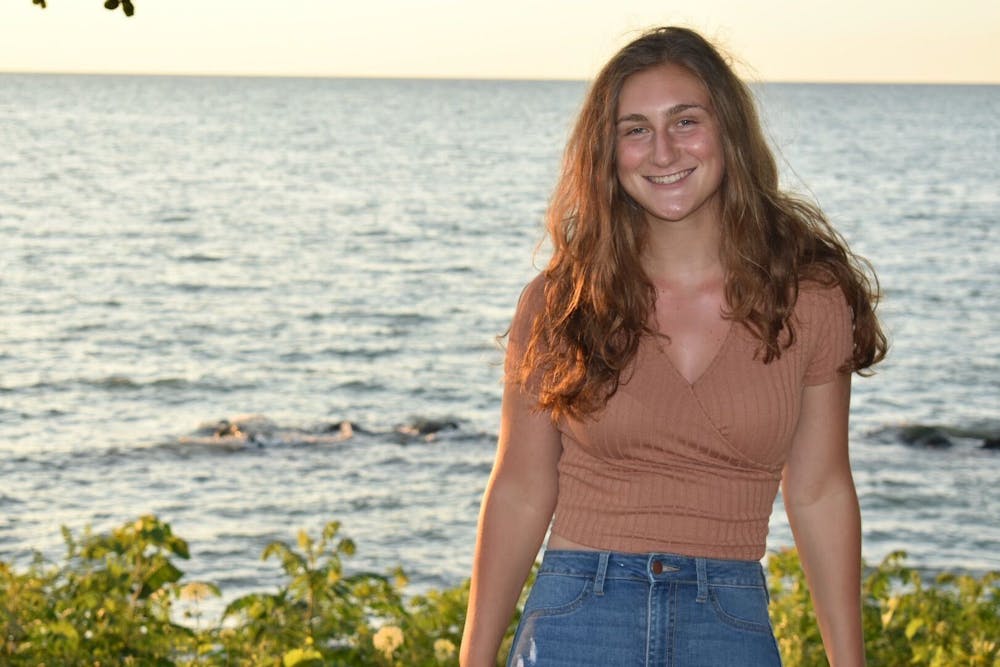Hilary Gallito is a sophomore working at the Alan Mason Chesney Medical Archives. In an interview with The News-Letter, she discussed her work as well as her passion for history.
The News-Letter: Could you give a little bit of background about why you're studying history?
Hilary Gallito: I took AP United States History (APUSH) as a sophomore in high school, and I just absolutely fell in love with it. A lot of history that we learn in high school and middle school is a lot of memorizing. We don't think about how history is formed, how different schools of history interact, how history is not just what you read in a textbook. It’s looking at primary sources and coming up with your own conclusions about what happened. I think APUSH gave me a little bit of exposure to that. So, I knew I always liked the field of history, and, within history, I was always really interested in the earlier period of American history but also religious history because I grew up Catholic. I am still practicing. I had a really good theological background, so it was always cool to be able to make connections between religious history, specifically in the earlier time period.
N-L: What brought you to Hopkins?
HG: I'd never done research in high school, but I was like “that is something really cool and something I would eventually love to do.” My mother got her masters in religious history, so I'd heard about her experience with humanities research. I knew this was something for me, and I also knew I wanted to play a sport in college. When I began looking at colleges possibly to run at, it was my mom who was like, “Hey, this school Johns Hopkins, they're having a talk at a nearby high school. We should go!” I had never heard of Hopkins in my life, but I just absolutely fell in love with it. I talked to the coach. We got along really well and, through the track team, I was able to get better exposed to the kids at Hopkins and the culture. It just seemed really fitting, so then I ended up applying and getting in.
N-L: You're doing some research with the Hopkins archives. Can you talk a little bit about that project? What have you been up to?
HG: When I first came to Hopkins, I really wanted to get a student job, and I thought it would be really great if it happened to connect to some sort of academic interest. I saw the archives were hiring a lot of students, especially because they were coming out of the pandemic so they could finally have in-person workers again. The medical archives are actually located all the way in Mount Washington. It was orientation week, so I hadn’t even learned how to use the JHMI yet, and I had to get on a shuttle to Mount Washington. I got there and interviewed, and I just absolutely loved it. They offered me the job.
We got a really big donation of these architectural drawings — like thousands upon thousands of architectural drawings of Hopkins hospitals ranging from 1870. The archives haven’t had the workers or the capacity to begin to catalog these architectural drawings, so it was my job to unravel all of them. I would measure the width and the length, who were the architects involved and what was the area. Specifically, we had a focus on if I could parse anything about Hopkins’ relationship to the Baltimore community — specifically the Black Baltimore community through looking at these architectural drawings. Could I see if there were Black spaces within the original Hopkins hospital that predate the 1960s or any large civil rights movements?
It was my job not only to catalog these into our system (because we have to keep track of all the artifacts that we have) but also to see if there's something to be said about Hopkins’ past through its material culture. So, I've been working a year and a half on and off with them, cataloging those and trying to see if I could figure anything else there.
I don't think the archives get enough love, and I don't think enough students reach out to them. It's very accessible to begin to do research there, to apply for grant research there. You meet a ton of people. You have to work the front desk sometimes as a student worker, which is totally normal, but I met the head of cardiology at Hopkins Hospital, who was doing his own research there, so it was really cool. It opened my eyes to what working in an archive looks like. What does archival research really mean as a history student? You could hear about it, but, until you touch the materials and see what it's like to interact with things that are centuries old, it's really hard to conceptualize. My work at the archives helped to open my eyes up to all of those things.
N-L: It's amazing to see all the stuff that you're working on and getting involved with. Is there anything else that you want to add?
HG: I'm very thankful to be here at Hopkins. I feel like I am the luckiest person to be so connected with the departments in which I study and do academic work, and I really love it. I guess that's my big message.





